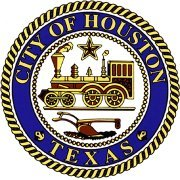Many cities in Texas, including Austin, Dallas, Fort Worth, Lubbock, and San Antonio, have a council-manager form of city government. In this setup, the city manager is basically the chief executive who implements the decisions of the city council, and manages the day-to-day activities of city government.
Houston is unique in that it has a strong mayor-council form of government. The mayor, city controller, and the 16 council members are elected and serve concurrent four-year terms. They may serve up to two terms, totaling eight years. The Houston City Charter provides the framework for the city government operations. City laws are written into the city’s code of ordinances.
In Houston’s city government, the mayor serves as chief administrator and official representative. The mayor has responsibility for managing
Houston and that all laws and ordinances are followed. With council approval, the mayor appoints department heads and members of advisory boards. The mayor administers oaths of office and signs motions, ordinances, and resolutions that the council adopts. The mayor presides at council meetings. He has voting privileges but does not have a veto power. The mayor advises the council of Houston’s financial condition and presents the annual city budget for approval.
The city controller serves as Houston’s chief financial officer. The controller makes sure that the city has the money before the council spends it. The controller also makes payments, invests the city’s funds, and audits city departments and federal grant programs. The controller operates the financial management system and executes sales of public improvement and revenue bonds. The controller also compiles an annual report of the city’s finances.
The council makes and enforces all ordinances and resolutions. Voters in the City of Houston elect 11 council members by district and five members at-large. The mayor, along with the council, act only by motion, ordinance, or resolution. The council confirms the mayor’s appointments, accepts or changes the city budget, appropriates and issues bonds, awards contracts, and approves expenditures over $50,000. The council may lease or sell the city’s real estate and place assessments against property. The council makes its own procedure rules. Its meetings are open to the public.


